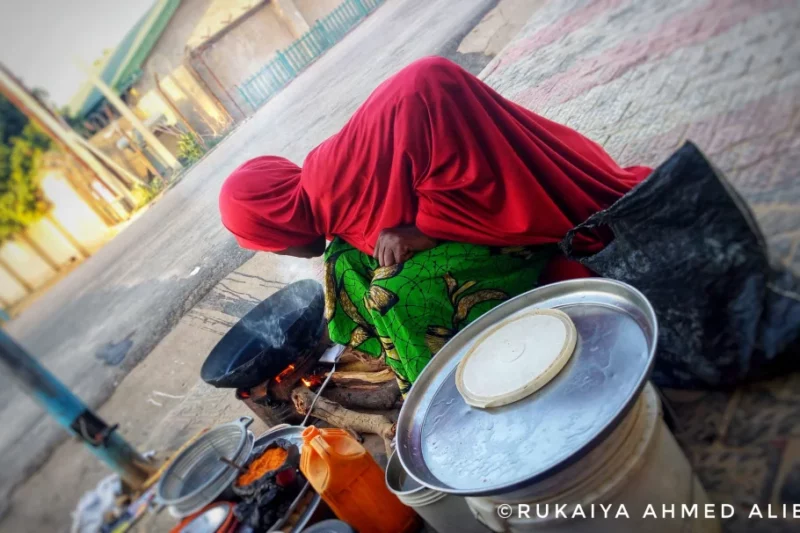With their breadwinners now dead – or missing, presumed dead – grieving widows in Borno State do whatever they can to feed and care for their children.
The 14-year conflict in Borno State, the epicentre of the insurgency, has left thousands of widows penniless and struggling to put food on the table – they are prepared to do just about any work to make money to feed their children.
Most of them had husbands who were the breadwinners, so they were well taken care of and not used to shouldering the responsibilities of financially looking after themselves or their children.
The widows stay either in internally displaced persons’ camps or in host communities.
Many of them do housework for wealthy people, others sieve grain and still others make caps. Muslim men wear the caps because they believe that the Prophet Muhammad always had his head covered, making it a recommended act for members of the religion to cover their heads too.
Some of the widows’ children hawk goods on the streets but their mothers say it is dangerous because they are open to abuse by wealthy men who offer gifts and money for sexual favours.
All the women who spoke RNI said that apart from the grief of losing their husbands, every day was a struggle to get money for food.
“It has been a life of pain and struggle to raise our children alone, especially as the majority of us are poor and do not have a sustainable means of livelihood.”
So said Falmata Abubakar, an IDP woman whose husband was killed by armed groups. They had been living in the Bama Local Government Area of Borno State, but now she and her seven children stay at the Kawar Maila IDP camp in Maiduguri, the capital of Borno State.
“We carry a lot of responsibilities on our shoulders as mothers trying to take care of our children. It has got a lot harder with the rising inflation rate and the skyrocketing cost of food and basics. Sometimes I feel as if it’s all become too difficult for me to handle.
“I started a small business. I knit caps. Whenever I sell a cap I get ₦7,000 per cap. I use the money to buy food for the family. But, with the high cost of living, I can no longer afford to send my children to school. We used to have two square meals a day but that’s now a thing of the past. We eat only once a day.”
Zarah Alhaji, a widowed mother of five, stays within the Mafoni community in Maiduguri.
“I sieve grains and get paid. This has help me to get what I can to feed the family. My children also help by going on to the streets to sell sachets of water. They bring in some money and we can eat. They don’t have time to go to school. I wanted them to go to school, but I realised that if they don’t hawk, we will starve.
“One of the community leaders in Mafoni once gave me ₦10,000 so that I could start my own business. He saw how hard we were struggling and wanted to help me and my children. I used the money to start a business making akara bean cakes. You peel the beans, they are washed and ground with pepper and other seasonings and then beaten to aerate them and they are deep-fried in small balls. But, unfortunately, I did not make much money and the little I did make went to buy food for my family. I ran out of funds and I had to close my business.
“Now, to survive, I do house chores in the community. I really wish someone could help me by sponsoring schooling for my children.”
Falmata Sani, also a widow and a displaced person originally from the Konduga Local Government Area, has nine children.
“My husband was abducted by insurgents four years ago in the Damboa Local Government Area. Since then, we have not heard one word from him. We do not know if he is alive or dead.
“I work as a housemaid and I also provide a laundry service. I get paid but the money is very little. I get ₦5,000 a month. None of my children goes to a Western school. I cannot afford it. I am so worried about their lack of education and their future. Now I send them to the Islamic school because it’s free.
“Seven of them are girls. They sell water sachets on the streets to help support the family. But whenever they go out hawking, they are constantly harassed by men.
“My second daughter, who’s 15 years old, was approached by a man using his wealth and promises of money. When she refused, the man got angry and tried to force her to have sex with him. From that moment I stopped my children from hawking in far-off places and told them to stay in our area so that they are close to us.”
FALMATA MOHAMMED ALI








